Youtube (featured videos)
Good news
- Raniero Cantalamessa
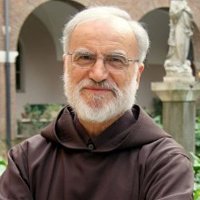 he Baptism in the Spirit's effectiveness in reactivating baptism consists in this: finally man contributes his part -- namely, he makes a choice of faith, prepared in repentance, that allows the that allows the work of God to set itself free and to emanate all its strength. It is as if the plug is pulled and the light is switched on. The gift of God is finally "untied" and the Spirit is allowed to flow like a ftragrance in the Christian life.
he Baptism in the Spirit's effectiveness in reactivating baptism consists in this: finally man contributes his part -- namely, he makes a choice of faith, prepared in repentance, that allows the that allows the work of God to set itself free and to emanate all its strength. It is as if the plug is pulled and the light is switched on. The gift of God is finally "untied" and the Spirit is allowed to flow like a ftragrance in the Christian life. - Peter Hocken
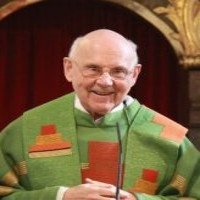 During the night between Friday and Saturday, in the early morning hours of 10 June 2017, the Lord called back to Him a great man, Father Peter Hocken.
He died at the age of almost 85. He was a servant of God, a friend, a priest who loyally served the Body of Christ until his last breath, all the world round. The Lord gave him an extraordinary intellect and wisdom, together with the experience of baptism in the Holy Spirit. He also received from God the talent and ability to provide specific and comprehensible theological explanations and descriptions of spiritual experiences that are taking place within the Church, notably after the Second Vatican Council.
During the night between Friday and Saturday, in the early morning hours of 10 June 2017, the Lord called back to Him a great man, Father Peter Hocken.
He died at the age of almost 85. He was a servant of God, a friend, a priest who loyally served the Body of Christ until his last breath, all the world round. The Lord gave him an extraordinary intellect and wisdom, together with the experience of baptism in the Holy Spirit. He also received from God the talent and ability to provide specific and comprehensible theological explanations and descriptions of spiritual experiences that are taking place within the Church, notably after the Second Vatican Council. - Dr. Martin Luther King Jr.
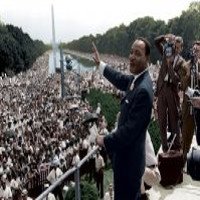 "I have a dream," he began, "that one day on the red hills of Georgia, sons of former slaves and sons of former slave-owners will be able to sit down together at the table of brotherhood. "I have a dream my four little children will one day live in a nation where they will not be judged by the color of their skin but by the content of their character."
"I have a dream," he began, "that one day on the red hills of Georgia, sons of former slaves and sons of former slave-owners will be able to sit down together at the table of brotherhood. "I have a dream my four little children will one day live in a nation where they will not be judged by the color of their skin but by the content of their character." - Peter Dufka SJ
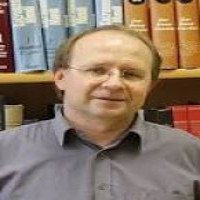 We all know, based on our personal experience, that the cooperation with most intelligent people is not often easy. These people usually do not establish friendship easily. It is interesting also that university graduates with an honour degree usually do not fit in to the working environment in the best way and that their high intellect is of a little help in overcoming personal or marriage crises.
We all know, based on our personal experience, that the cooperation with most intelligent people is not often easy. These people usually do not establish friendship easily. It is interesting also that university graduates with an honour degree usually do not fit in to the working environment in the best way and that their high intellect is of a little help in overcoming personal or marriage crises. - Marek Nikolov
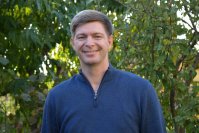 The aim of the “Jesus Heals” prayer gatherings is experiencing the fact that God is Love. He is Love that wants to give itself to other people. God wants to show us His mercy even through healing, signs, wonders, and miracles.
The aim of the “Jesus Heals” prayer gatherings is experiencing the fact that God is Love. He is Love that wants to give itself to other people. God wants to show us His mercy even through healing, signs, wonders, and miracles.
Video
Prorocká výzva Geoffa Poultera pre Slovensko, ktorá sa začína napĺňať.
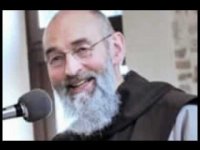 Zaujímavá a výpovedná skúsenosť západoeurópskeho muža s hinduizmom, budhizmom, jógou, ezoterikou a okultizmom.
Zaujímavá a výpovedná skúsenosť západoeurópskeho muža s hinduizmom, budhizmom, jógou, ezoterikou a okultizmom.
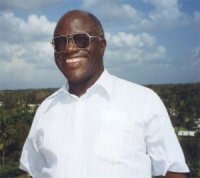 Príbeh bývalého teroristu, ktorý dnes spája etniká a kmene.
Príbeh bývalého teroristu, ktorý dnes spája etniká a kmene.
Stephen Lungu
 Hudobníčka Lacey Sturm, bývalá speváčka kapely Flyleaf, bola presvedčenou ateistkou a mala v úmysle vziať si život... ale zrazu sa všetko zmenilo.
Hudobníčka Lacey Sturm, bývalá speváčka kapely Flyleaf, bola presvedčenou ateistkou a mala v úmysle vziať si život... ale zrazu sa všetko zmenilo.
We all are part of a great story. The great story of the world is composed of past and present stories of lives of individual people. The portal mojpribeh.sk is focused on the most important moment of the story of the world and individual, the moment of personal experience of person with God.
Story - Petr Jašek
Peace and intimacy with God in suffering
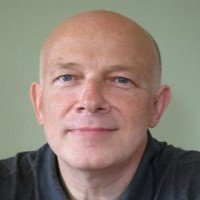
He is a volunteer of Hilfsaktion Märtyrerkirche – Aid to Persecuted Church. He works for the Czech organisation Hlas mučeníkov. In Sudan, he was sentenced to 20 years in prison. He has a 20-year work experience in the field of clinical biochemistry, haematology, and blood transfusion. Since 2002 he is a full-time employee of the American sister organisation of Hlas mučeníkov. This interview with Petr Jašek is also available on DVTV.
In his interview Petr Jašek speaks about his work for persecuted Christians in the world, prison and torture in Sudan, good Muslims, threatens suffered from ISIS members, four-month isolation cell, his very interesting point of view on Islam, spiritual direction of Europe, opinions of Muslims on migration crisis and Europe, his message, and his call to mankind.
Last year you were unjustly accused, condemned, and imprisoned in Sudan. There were also fears of death penalty. Your faith was proved with fire in jail. For introduction, I would like to ask you: how was your road to faith in Jesus Christ long before this experience?
I was kind of privileged, because I grew up in a family of believers. My father was a Protestant priest. My previous generations (both at my mother’s and father’s side) had always been believers.
As we know, faith is not a question of heritage. People must get their personal relation with the Lord Jesus Christ. This cannot be inherited. You have to be reborn in Jesus. In my life something similar happened.
I never felt rebellion against God. I usually obeyed to my parents and I regularly attended Christian assembly meetings. At the age of 15 I participated in a Christian summer camp in Eastern Germany. I heard speeches about God’s Judgment, our preparation, and our dedication of our life to God. I took a steady decision. It was a silent decision, not ostentatiously. It was a pact between me and God, after mature thinking, spontaneously, without any manipulation. It was my free decision. Since then, my life changed so much that I received great courage and I was not afraid of speaking about Jesus with my school-mates and teachers. Since then I live with the Lord Jesus. It was a decision I took at a relatively young age, but for the rest of my life.
What life events deepened your love for Christ?
When I was younger and took the above mentioned decision, my parents not only performed their official ministry services but also organised youth meetings with people from all denominations from all parts of former Czechoslovakia. The secret police did not like it too much and started to monitor our house and our activities. One day I came back from school and I was told that both my parents were arrested and interrogated by the State Security. When my dad came back home, he gave me a German book. At that time I already spoke fluent German. The name of the book is “In God's Underground” and its author is Richard Wurmbrad, a protestant pastor from Romania who spent 14 years in communist prisons (3 of them in isolation cell). My father gave me that book and told me to read it, because it would boost my faith. I did it. Still today, after the Bible, it is the second most important book in my life. It strengthened my young faith and helped me consolidate my decision. The book describes torture perpetrated in communist prisons in the 1950’s and 1960’s. My faith was immensely reinforced and I was more than ever convinced that I wanted to follow Christ at any cost.
Persecution we felt in our family was a piece of cake compared to torture and beating suffered by Richard Wurmbrad in the communist prisons in Romania.
In 1965 he was exiled and sold to a Norwegian missionary organisation at the price of USD 10,000 (for him, his wife and his son). They were expelled from Romania. Before expulsion, they were told not to tell anybody about persecution of Christians in Romania – otherwise he would get killed. It wasn’t just simple threatening. When Ceaușescu’s regime fell, Wurmbrad’s son made a search in the archives of the “Securitate”. He found the name of a person who was sent from Romania to California to kill Richard Wurmbrad. Eventually, he was not killed. God saved him. In 1967 Richard Wurmbrad founded the International Christian Association, acting together with the Voice of the Martyrs and informing about persecuted Christians in the world (and – of course – also helping them). It was quite an important experience for me in my youth years. A couple of years later, I happened to lead one of my school-mates at university. I told him about that book. He had recently converted and was amazed by that book (better to say, just by what I told him about that book). Later on, he became chairman of our organisation “Help to Persecuted Church”, brother Stanislav Forejt. He invited representatives of the German organisation HMK – Hilfsaktion Märtyrerkirche (also translatable as “Help to Persecuted Church&rdquo![]() . In 1992, they helped us create the Czech branch. Today, this branch has 25 years of experiences and I am one of its co-founders. We act as a circle, as a community. I work as volunteer. I translate articles inspired by my trips. I arrange some aid projects or I act as liaison officer within contact with our sister organisations “The Voice of the Martyrs”. There are about 20 such organisations worldwide, working in different world countries. So, that’s how I work for the persecuted church. I personally perceive this as a great honour or as a sort of privilege. I received help from Western countries at time of persecution in my country. And today I am proud to be one of those who provide help to currently persecuted Christians.
. In 1992, they helped us create the Czech branch. Today, this branch has 25 years of experiences and I am one of its co-founders. We act as a circle, as a community. I work as volunteer. I translate articles inspired by my trips. I arrange some aid projects or I act as liaison officer within contact with our sister organisations “The Voice of the Martyrs”. There are about 20 such organisations worldwide, working in different world countries. So, that’s how I work for the persecuted church. I personally perceive this as a great honour or as a sort of privilege. I received help from Western countries at time of persecution in my country. And today I am proud to be one of those who provide help to currently persecuted Christians.
When and how you decided to go and help people in poorer countries (incl. Muslim countries) where Christians and missionaries risk their lives?
First of all I must say that our International Christian Association helps persecuted Christians in different ways. We inform the Western world about persecution and we help persecuted Christians through concrete projects. As a worldwide organisation, we don’t send missionaries. Media wrongly characterised me as a missionary. Actually, I am not a missionary. The aim of our organisation is not missionary action. We believe that the best missionaries are always the inhabitants of the target countries. I mean they know exactly what is necessary for their fellow nationals. We just assist them and provide them with necessary tools in order to make their evangelising ministry much more efficient. We provide technical equipment to show Christian films or spread the Gospel through PR systems, when they need to address larger crowds. We also provide transportation means to reach remote places. In most of the cases, we furnish motorcycles or bicycles – less often automobiles. We donate computers o copying equipment to reproduce Christian material. Last but not least, we spread God’s Word in electronic format, audio files, MP3, etc. – especially in countries where distribution of printed Bibles represent a higher risk or in areas with high illiteracy rate (where people are rather keen in listening than in reading the Bible). We don’t send missionaries directly. In 2002 I abandoned my hospital director career. Unti then, I’d worked for 20 years in the healthcare sector, in the field of clinical biochemistry, haematology, and blood transfusion. In 2002, I started to work on a full time basis for our American sister organisation. Since then I’ve been taking just short trips to see our brothers and sisters in need. We try to consolidate or instaure new contacts with representatives of local churches. We make interviews with them. We aim at ascertaining their real problems, i.e. what they need in order to make their service as efficient as possible. I usually do short trips to very dangerous regions, where Christians are killed, tortured, and detained. This is part of my everyday work. My trips were short and focused on specific aims (1 week or 2 weeks). As for Sudan, I went there in the month of December just for 4 days. I wasn’t even supposed to leave the capital city.
What brought you to Sudan?
My aim was meeting the columns of local church. In October 2015 I took part in a conference about Sudan, held in Addis Ababa, Ethiopia. Here I met 15 representatives from Sudan and about as many people from Westerner countries. There were people from Sudan who were forced to leave their country and kept contacts with their persecuted fellow nationals. It was a small conference (just about 30 people). I met interesting people and I planned to visit them in the future. They informed me about the concrete situation of persecuted Christians. I told them I would visit them in near future. I also wanted to interview the burned student we discussed about during the conference. From 6 to 10 December 2015 I had a chance to get there. It was quite easy to get visa. I just had to book my hotel and return ticket. Then I received a tourist visa. My main goal in this country was documenting persecution of single people and whole churches and communities. Right then, there had been numerous church buildings completely demolished on the basis of demolition order from local authorities.
Why were you accused and imprisoned in Sudan?
Already in the airport, when they arrested me, they wanted to know the aim of my trip. They spoke broken English. I could hardly understand them. I also tried to speak French, German, and Russian. It is well known that their information services are connected with the Russians and their secret services. I told them I was a tourist, but they showed me pictures covering all my previous steps in the country. They had a photo documentation of all my previous meetings in Sudan. Some of the pictures were taken with night cameras. They didn’t leave anything to chance. They had followed me from the very beginning. My fellow prisoners told me the authorities might know about me even before my arrival. Indeed, they already knew everything about the Addis Ababa conference. They asked me questions about things I didn’t know about. It looked like I was reluctant to answer, but I actually had no knowledge at all. In Addis Ababa, I had got acquainted only with some conference participants and I just remembered their first names. As for the other conference participants, I had no idea who they were. So my cellmates were probably right: the authorities knew me before my departure for Sudan. There was one thing that made them mad. Actually, I hold three Czech passports. They are all issued with my name and identification number. I travel a lot and I often need to send my passports to different countries at once. So I never travel with only one passport, but I usually have two passports. They found both of them and they soon deducted I was a spy, because normal people do not travel with two passports.
They wanted my computer, laptop, telephone, camera, etc. They wanted all I had with me. Actually, I always consider the possibility that there might be some controls...
I was often controlled when leaving Central Asian countries. It was not a new experience for me. I didn’t have any picture of the burned student. I had previously deleted them. By the way, I didn’t expect such a meticulous control. If I did know it, I would have overwritten the deleted files through a special programme. I could have done it. Payment receipts and other important documents were stored in the safety area of my disk. Unfortunately, the deleted files had remained in the memory card. Even my son (a primary school pupil) can restore non-overwritten deleted files. They recovered all those pictures from the memory card. First of all, they accused me of violation of tourist visa, because I reportedly carried out unauthorised activities. It was the main reason for my arrest. I realised it during all those hearings and investigations.
How did you feel when you were in jail? What about your family? Were you in contact with your family?
After my arrest I didn’t have any opportunity to call my family for 10 days. Then they allowed me a 30-second phone call to my wife in English. They also wrote me the exact sentence I had to repeat. Something like: I’m ok, in good health, there has been some misunderstanding and I’ll contact you back as soon as possible. Then, they did not allow me calling home for 8 months. I made my first phone call from a prison where it was possible to use a telephone by paying money. Eleven days after my arrest, the Czech consul from the Cairo embassy came to visit me. Indeed, the Czech Republic has no embassy in Sudan. It was a great support for me, because he brought me news about my family. It was hard to think that my family was waiting for me and I was in jail. I usually sent SMS or called via Skype. I was supposed to contact them while waiting for flights in Nairobi, Amsterdam, and Prague. The last call with my wife was one hour before leaving the hotel in Khartoum. I told her I will contact her again as soon as I will have internet connection (or I will send her an SMS).
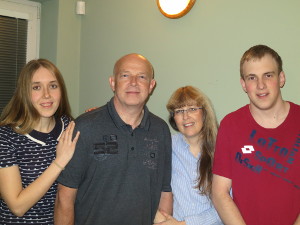
My wife imagined that something happened, because I did not contact her. For me, it was terrible to think that they didn’t know anything about my situation. They called my hotel and apprehended that I had left. They called the minivan driver who brought me to the airport and he told them I regularly left his car at the airport. Then, they called the airlines company. They apprehended that I had withdrawn my aeroplane tickets, but I did not embark in the aircraft. Sudanese intelligence provided false information to the Czech embassy in Cairo. They spread false information according to which I was arrested for smuggling tiger leather and other non-sense. They notified I had two passports. Initially, the Czech embassy thought I had double nationality; then they verified I was regularly a holder of two passports. The worst thing was that my family was waiting for information and they did not know what was going on.
I was tormented by the thought that my family did not know what was going on with me.
Maybe their aim was to separate us. Since then, I was not able to contact my family until 15 February (after about two months). Because of that, I also started hunger strike. For 8 days in a row I just drank water and took my drugs. Eventually they brought me to the hospital because they were afraid I could faint. In the hospital, they administered me glucose infusion by force. They also found I had anaemia. Then, I decided to stop my hunger strike. It is not easy to describe the psychological pain in these situations, especially when I was thinking about my family and my friends and how they were upset because of my destiny. All these experiences brought me to live a closer relatioship with God in suffering and in difficult situations. Indeed, when I was in jail, my prison mates were repeatedly offending and attacking me – verbally and physically. Many of them were members or sympathisers of the ISIS.
In the early days of my detention I had hard time thinking about my family. I could not accept the idea that they were suffering too and I was impotent. I systematically tried to reject all thoughts about my family. Otherwise, I would have got severe psychological problems.
Cells were overcrowded and everybody was repeating the same prayers 5 times a day. They read the Quran loud. People screaming, no place to move… All these factors have a very negative impact on your psychological status. I started to praise and invoke the Name of God as it is written in the book of Revelation, chapter 4, in which we read about creatures that are always before God’s throne and call: Holy, holy, holy is the Lord God Almighty, who was, and is, and is to come. I realised they can do that without interruption, forever and ever. So, I also started to praise the Lord in the same way. I must confess that my interior peace was much more intense. The Islamist got meaner and wanted to try waterboarding on me. Fortunately, I was transferred to another cell and the guardian – in a certain manner – saved my life. Many people already asked me this question. In those moments of great suffering, physical attacks, etc. you feel the greatest calm and interior peace. Then, I was finally able to think about my family without getting sad or being bothered by other bad psychological conditions.
What are the main impressions left in your mind after your ministry in Muslim countries?
Suffering and persecution bring us closer to God. During the early 4 month I didn’t have any chance to read the Bible. After 4 months of isolation I experienced an incredible joy. I felt the presence of God when I could pray loud. Memory started to work back and I could sing several Christian songs. I experienced a deep vicinity of God in my life and my prayers were stronger and stronger. I experienced something extraordinary like praying 15 hours in a row without any lunch break or other interruptions. For me, the possibility of reading the Bible early in May was an unbelievable breakthrough. It was a miracle that the Czech consul managed to bring me a Bible. I longed so much for God’s Word. I was able to read from 8:00 to 16:30, depending on weather. I had to stand close to the window. So, in 3 weeks, I read the whole Bible, from Genesis to Revelation. During that period I read the New Testament ten times and the Old Testament six times. It was fantastic! While I was reading the Bible I found exactly those verses that God reminded me in times when I didn’t have any access to the Bible. Once every three days, or once a week, I was led by one biblical verse that was sent from God in order to encourage me. For example, in taking care of my family: Ephesians 3,20 21 “Now to him who is able to do immeasurably more than all we ask or imagine, according to his power that is at work within us, to him be glory in the church and in Christ Jesus throughout all generations, for ever and ever! Amen”. The Holy Spirit reminded me about this verse and I was continuosly repeating it, although I didn’t remember its exact quotation. I felt the meaning of that verse. Then I found the exact verse, when I got the Bible. And I also found many other verses that gave me great courage.
I started to learn Bible passages by heart, because I didn’t know how long I could have the Bible with me.
The Muslims asked me questions and I answered in such a way to show them what the basis of the Gospel is and what is the real good news. I had a wonderful time. I had my prayer life just for me. I was able to call God and feel His Spirit working in me. I was learning a lot and systematically reading the Bible. God’s Word was feeding me. In the second prison (actually it wasn’t a prison but a police station). Then, they brought us to a real prison, with a small chapel inside. I spent 6 months there and I was able to preach twice a week in that chapel. I understood that God was preparing me through a life storm. He was forming me in jail and He was calling me to be closer to Him. Then, God gave me a chance to live a deep prayer life and get fed with His Word. He was preparing me for the following 6 months. It was fantastic. I could be in the chapel from morning to night. When I was not preaching, I read the Bible. When I was not reading the Bible or nobody was with me, I could talk with single individuals about God. I encouraged them not just to visit the chapel, but to become children of God. It was fantastic. I had a marvellous experience even in the last place of detention, where I was together with a pastor in a section with no chapel. The chapel was elsewhere and we were allowed accessing it only once a week on Sunday. And even there, I had several chances to preach.
In less than one month I preached several times in the new prison. Pastor Hassan Abdelrahim Kodi was a Bible School student. He was imprisoned and he is still detained there. Today, he is a detainee-preacher. From his position it is something really extraordinary. It is an incredible spiritual experience. God is using him and is preparing him as a student and at the same time as a teacher in this chapel.
Today, what do you think about your jailers and torturers?
I can sincerely declare that I never felt hatred towards them. The only explanation for this is that it comes from the Spirit of God who dwells in us when we entrust our life to Jesus Christ.
I can say I received that force from the Spirit of God.
I did not react to any of their threats and smacks; it made them even more furious. God intervened and they moved me away from my prison cell to another place. I should say that I did pray a lot for those prison mates who were hurting me. They are zealent because they take the Quran very seriously (especially its second part). They are convinced that in this way they serve God. Jesus said that there will be times when people will kill other people because they believe that they are serving God in such way. I think it is exactly the case of the Islamic extremists. They take it literally. They try to eliminate all those who are unbelievers. I never felt hatred towards them, not even then; although I must confess that only after I while I managed to achieve such an interior status that allowed me praying and being compassionate towards my inspectors, prosecutors, and secret agents. At the beginning I did not have such a spontaneous merciful reaction... Eventually, I realised that they really don’t know what they do. Since July 2015 I started to pray for my inspectors, guardians, and prosecutors. I always prayed for them to receive the revelation of God as their Saviour. Muslims know Jesus as a prophet. He is in the Quran, but he is not the Son of God for them. This is their main problem.
What is your relationship with the Islamic world and how do you look at Islam?
I must admit that I have experienced not just threatening and maltreatment from Muslim extremists, but I also met a lot of friendly and easy-going Muslims. Actually, at the beginning I met a lot of good people. The Islamists came later and started to attack me. I didn’t have warm clothes with me. I just had 2 pairs of trousers and 3 t-shirts. My bed was the floor and it was quite cold. I asked for a blanket, but they replied people from the Czech Republic should be used to cold weather. So I had to forget about my blanket. One week later, a Muslim detainee (not a member but a sympathiser of the Islamic State) gave me a blanket. I don’t know whether he asked somebody for a blanket just for me. His wife came to see him and brought a new blanket. So he gave me one. I took it with tears in my eyes and I told him I will pray for him. Actually, I asked him if I can pray for him, so that he can find the right way to God. He said I could. He said: pray for me so that I can find the right way to God. I still pray everyday for that man.
His name is Mohamed Al Bashar and he is a very friendly person.
In certain occasions, when other extremists were not noticing him, he tried to help me. He spoke just a little English and he often talked with me through an interpreter. He was always kind with me. I met a lot of Muslims like him. On the other hand, I look at Islam with the eyes of the New Testament. St. John tells us that those who deny the Father and the Son are antichrists. They refuse the Son of God (see 1 John 2, 22 -23). Islam affirms that God has no sons. St. John teaches us: Who is the liar? It is whoever denies that Jesus is the Christ. Such a person is the antichrist--denying the Father and the Son. When I had a chance to discuss with Islamists and with other Muslims about their religion and about difference with Christianism, they said officially Christ did not die on the cross, but somebody else died instead of him. He was reportedly taken right to Heaven.
They deny the main reason why Christ was borne in a human body and why he died (because in his human body the sin was definitively condemned).
This basic principle is denied. That’s why they have to repeat the same prayers five times a day. One cycle of those prayers is called “Rakat”. They have to pray 17 rakkats a day. Then, they also have the so-called facultative prayers (12 prayers). They do it because they want to balance their imaginary sins. Here you can see a clear human effort to reach the forgiveness of sins through our merits and activities. Even Christians may fall in this way of thinking, if they believe that they can gain something by repeating some formulations learned by heart. I look at the situation with the eyes of the New Testament and of what John wrote at time when Islam did not exist yet. I must also admit that I observed those Muslims praying – extremists or non extremists… Sometimes they prayed quite loud. I don’t know whether they were repeating those prayers or it was just spontaneous worship. I remarked their desire to get closer to God. I cannot judge anyone. The Lord appreciates those who are sincere and honest and are searching God truthfully, regardless of the fact if they are Muslim or of other religions. God gives them several ways to find Him.
What is your point-of-view about the migration crisis? What do you think about compatibility between Islam and the European Judeo-Christian culture? How should we look at the current migration issue?
I don’t think I’m an expert of migration. People very often asked me questions like this. I can give you a very simple answer. In such international context the Voice of the Martyrs has one steady principle: we help persecuted Christians in their countries of residence. We help those who decided to remain in their countries despite persecution. Of course, if somebody wants to live, we respect it. We focus mainly on countries with major persecution records. We risk our lives in these regions. The Voice of the Martyrs brings help to Syrian Christians who decided to stay in their country. I recently read an article stating that many refugees are not from critic areas, but young and healthy boys pursuing their dream: their European dream. Europe significantly abandoned or disclaimed its Christian roots. Today, we should ask ourselves what values are applied in Europe. I think this is a question for believers and politicians in Europe. Europe was founded on certain roots, and today it is abandoning these roots.
When I was amidst the Islamists, they often referred to Europe by stigmatising it. They said people in Europe are stupid. That’s what they said. They rejoiced for the number of illegal migrants entering Europe and the percentage of IS fighters among them.
They openly declared that we just got stuck into their trap. It is probably interesting to know how they perceive this issue. I’ve heard it directly from their mouth. They are proud of their success in introducing illegal weapons to Europe. For example: they buy an automatic weapon in South Sudan for USD 200 and they sell it in Britain for GBP 5,000. They openly revealed their goals. Another point: when they settle in our countries, they officially have one wife, but indeed they can live together with their four wives. It is no secret. When the last French soldier left Algeria, the first Algerian president Boumedien said: one day we shall conquer Europe, not with weapons, but with the wombs of our women. It is their strategy. For example, almost all westerner countries approved same-sex marriage or registered union. Couples live together without marriage and do not want to have children. They just want to enjoy life. Occasionally, they have children, but only one or seldom two, which is not enough to prevent demographical extinction of our European culture.
Despite your unpleasant experience in Sudan, you still want to help further African countries. What does encourage you to serve people?
I actually work for and in different countries of Central Africa, Middle East, and Asia. Sudan came at the beginning of the 1990’s, when a systematic genocide was taking place in the southern part of the nation (today an independent country, South Sudan). On a worldwide scale, the Voice of the Martyrs had, for example, projects for 27 African countries in 2015. I visited almost the whole continent, with the exception of 7 or 8 countries. Nigeria is one of the countries where I spent most of my time.
One of the worst persecutions against Christians is taking place in Northern Nigeria. Christian men are systematically killed and women are raped. Even women and children are often murdered.
We focus mainly on this aspect. After my arrest I was very often on the spot. My picture was registered in the archives of the Interpol. Previously, I used to act with some fictitious name, either at home in the Czech Republic, Slovakia or in other parts of the world. Unfortunately, my name was published everywhere in the media, TV, etc. Now I have to change the essential character of my function. For sure, there are more and more countries I shall not be able to visit anymore, because I wouldn’t get any visa. When I came back from Sudan I was interviewed by the Czech television. The journalist told me he tried to find information about my person on the internet, but there were no data on Google. That was exactly my goal. Now, everything is different. Today, somebody also created my Wikipedia page. Try to digit my name on Google and you’ll see pictures about my arrest, information about my captivity and release, etc. So, from this point of view, things got worse. I shall probably change my role and play as a sort of ambassador of persecuted Christians in the free world. I shall talk a lot about it and I shall visit parts of the world where Christians are persecuted, but also countries where people are interested in this issue and are willing to sustain our projects. First of all, I want to rest a little bit. I want to write a book. The Voice of the Martyrs wants to publish it as soon as possible. I am travelling all around the Czech Republic and Slovakia. At the end of April I’ll be in Bratislava as well. I received invitations from many communities in former Czechoslovakia. I don’t want to loose contacts with persecuted church. I shall probably meet those persecuted Christians in some neutral places. I think I won’t meet again my Christian friends from Sudan, unless the political regime will change. I could meet them in Egypt, Ethiopia, Kenya, Uganda or in other close countries. I don’t want to loose contacts with persecuted church, but for sure it will be in another form. I think I can still serve the Body of Christ in different ways all the world round. I could keep spreading news about persecuted church in the world; especially in countries where people should hear more about this phenomenon, so that more and more people can become part of the Body of Christ and help persecuted Christians worldwide.
How would you formulate your life message and invitation to follow Jesus Christ?
In today’s world (notably in Western civilisation) we are often facing false invitations to Christ. What do I mean? Western civilisation shows a large diffusion of the so-called theology of prosperity. I’m sure you heard about it even in Slovakia. Our countries are not immune. My invitation to Christ sound a bit different. I don’t offer life, good health, wealth, and happiness, when they find Christ. If you carefully read the Gospel, you notice that Christ warned his disciples against persecution. John tells us that we will be persecuted as well. There are many other passages where Jesus prepares his followers by telling them they will be persecuted. St. Paul in 2 Timothy 3,12 states: “In fact, everyone who wants to live a godly life in Christ Jesus will be persecuted”. I would like to invite anybody to Christ. I can witness through my life. When I felt the worst crises, Christ showed me that he can help me; just as he did with his disciples. I preached about this theme on the last Sunday in our community. Just look at Matthew’s Gospel. We are informed about two storms. The disciples were frightened and Jesus silenced the storms. It is interesting that during the first storm they are amazed and ask: who is that man who calms the wind and the sea. Then, during the second storm they say: you are the Son of God and bowed down.
I would stress notably God’s appeal to give our life to Christ, to accept the sacrifice of reconciliation that He is offering us. This is my piece of advice. This is my invitation to Christ. There is no other way and no other place where people may find permanent peace.
The Lord says: Peace I leave with you; my peace I give you. I do not give to you as the world gives. I give you complete peace; my peace is not like that of this world. This is something people are missing in today’s world. Today, people are living without interior peace, with several internal conflicts. They are looking for success and wealth, but they are also aware of fleetingness and vanity of all things. What an invitation! Real peace! The peace of Christ! And we can get it for free, if we believe in his sacrifice for mankind on the cross. This is the peace they can receive and I can assure that they won’t lose such peace, not even when storms and crises shall arrive. I can witness it through my life: God, our Lord, is faithful, even in hardest times. He is on that ship with us and he is also the anchor of our life.
Thanks for interview Marek Nikolov
Latest
- Rhett Vorster
Personal experience with Christ - Paul Holliday
Seeking answers to the afterlife - Harriet Coombe
Something better than healing - Denis Chane Sing Guan
Hearts home - Milan Tószegi
I did not see it yet, but I believed in His Word.
Random
- Dária Miezgová
The seeking of happiness & fullness of life is permanent - Mary Matthews
Belfast Christian Family - Ján Filc
- Bohuš Živčák
I heard God in the sounds of the woods - Jana Daňová - Bugalová
God will find you
Total: 162 stories in this language.
There are 516 in all languages. To change the language please click on one of the flags.
Talks
- Geoff a Gina Poulter
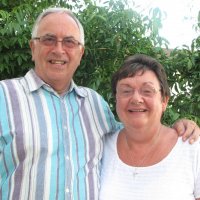 Geoff and Gina Poulter are active in healing ministry in Great Britain and in other European countries. They have zeal for building Lords kingdom. In Slovakia are already known mainly throwgh Jesus heals ministry where they were main speakers. They believe, that Lord comes with power, when we call him by His name and walk in faith. They are full of gentleness and kind behavior to people, which they serve with prayer for healing and prophetic giftings. Their ministry folows healings, sings and wonders.
Geoff and Gina Poulter are active in healing ministry in Great Britain and in other European countries. They have zeal for building Lords kingdom. In Slovakia are already known mainly throwgh Jesus heals ministry where they were main speakers. They believe, that Lord comes with power, when we call him by His name and walk in faith. They are full of gentleness and kind behavior to people, which they serve with prayer for healing and prophetic giftings. Their ministry folows healings, sings and wonders. - Petr Jašek
 As we know, faith is not a question of heritage. People must get their personal relation with the Lord Jesus Christ. This cannot be inherited. You have to be reborn in Jesus. In my life something similar happened.
As we know, faith is not a question of heritage. People must get their personal relation with the Lord Jesus Christ. This cannot be inherited. You have to be reborn in Jesus. In my life something similar happened. - Ján Volko
 I think Jesus plays a very important role. Faith in God helps me in difficult moments and also during competitions. I feel that God gives me His graces and blessing – and this is a huge support for me.
I think Jesus plays a very important role. Faith in God helps me in difficult moments and also during competitions. I feel that God gives me His graces and blessing – and this is a huge support for me.

